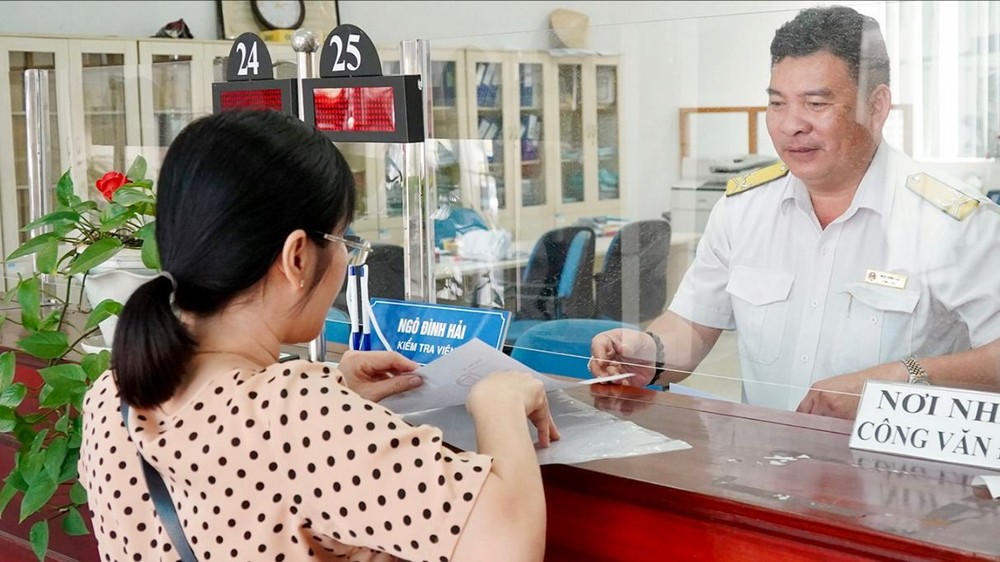
For Nguyen Van Phu, who runs a small eatery in HCMC, the numbers just don’t add up under the current tax regulations. He calculates that at a price of VND50,000 (US$2) per bowl of noodle, selling just six bowls a day pushes his annual revenue over the current VND100 million ($3,800) threshold, making him liable for tax. He argues this threshold is far too low and stifles small business owners.
“After you deduct all the costs from selling six bowls a day, there’s not much profit left”, he explains. Even with the taxable revenue set to increase to VND200 million ($7,600) a year, Phu still feels it’s too low, as that means he’ll have to pay tax once he sells 12 bowls a day. His current tax burden is 4.5 percent of his total revenue – comprising 3 percent for value-added tax (VAT) and 1.5 percent for personal income tax (PIT) – in addition to an annual business license fee of VND500,000 (approx. $20).
Fortunately, this long-standing issue for Phu and millions of other business households is set for a fundamental change. Starting January 1, 2026, the taxable revenue threshold will officially rise to VND200 million per year. Even so, many economists believe this increase is still insufficient and essentially "outdated before it’s even implemented."
Nguyen Duc Nghia from the HCMC Business Association notes that with an annual revenue of VND200 million and a typical profit margin of around 6 percent, a small business owner’s actual income is only about VND1 million per month.
He, therefore, proposes raising the threshold to VND360 million (approx. $14,400) per year – or VND30 million per month. “This level would reduce administrative costs for tax management and provide real support to household businesses”, he says.
This sentiment has been echoed in the National Assembly, where many have called for a higher threshold to ease the tax pressure on small-scale businesses. This argument is bolstered by the reality of today’s cost of living.
One economist pointed out a glaring inconsistency that the standard deduction for personal income tax is VND11 million/month ($420) or VND132 million/year ($5,047) plus deduction for dependents at 4.4 million VND/person/month ($168) , and even that is widely acknowledged by the Ministry of Finance itself as being outdated.
Given this, a rule that taxes a business on VND100-200 million of revenue – not profit – is seen as completely out of step. This means a business could break even or even operate at a loss but still be forced to pay tax if its revenue crosses the line. That’s a real burden for taxpayers.
The taxable revenue threshold is one of the important contents in tax management work. This threshold will determine the appropriate form of tax management. In the consultation dossier for the Law on Tax Administration, the Ministry of Finance plans to divide households and individual businesses into 4 groups for management.
- Group 1: Revenue below the taxable threshold (under VND200 million/year or $7,600 as of Jan 1, 2026).
- Group 2: Revenue from VND200 million to under VND1 billion/year ($7,600 – 38,000).
- Group 3: Revenue of VND1-3 billion/year ($38,000 – 115,000) for agriculture, industry, construction or VND1-10 billion/year ($38,000 – 380,000) for commerce and services.
- Group 4: Revenue over VND10 billion/year.
The first two groups will be encouraged to use e-invoices as presumptive tax is phased out. The latter two groups will be required to use e-invoices with the tax authority’s code or e-invoices created from cash registers when retailing goods and services. Group 3 will follow a simplified accounting regime, while Group 4 will adopt standards similar to small and medium-sized enterprises.

This law is scheduled to be submitted to the National Assembly for approval at its 10th session this October. According to Deputy Director Mai Son of the General Department of Taxation, the tax authority plans to propose increasing the tax-exempt threshold to “at least double the VND200 million/year level” (i.e., VND400 million). He also mentioned potential changes to PIT rates based on revenue scale and other policy amendments to support business development.
While a threshold of VND400 million would be a significant step forward, tax officials emphasize that these are still preliminary proposals. From now until 2026, the General Department of Taxation will continue to gather feedback from taxpayers and tax consultation associations, along with guidance of competent authorities, to report on rates and declaration methods that align with the reality of business operations.
Many economists urge the Ministry of Finance to calculate a truly satisfactory threshold, one with a built-in adjustment mechanism to prevent it from quickly becoming obsolete. They stress that this new threshold must also be harmonized with other key tax laws, including the recently effective VAT law and the upcoming amendments to the Personal Income Tax law.
























